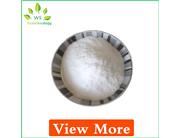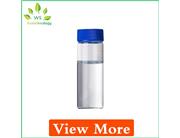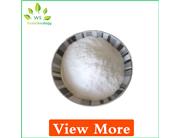Lauroyl Lysine is a derivative of the amino acid lysine, which is commonly used in cosmetics and skincare products. It’s a lysine ester, formed by combining lysine with lauric acid (a fatty acid found in coconut oil and palm kernel oil).
Key Uses and Benefits:
Skin Conditioning: Lauroyl lysine is often used in skincare formulations for its ability to condition the skin, providing a smooth and soft texture.
Emollient: It can help to improve the texture of cosmetic formulations, making them feel more luxurious and smoother on the skin.
Anti-Bacterial Properties: The lauric acid component can have mild antimicrobial properties, which may help in preventing bacterial growth on the skin.
Improves Product Stability: It can also help stabilize formulas, especially in powder products like eyeshadows and foundations, giving them a more silky finish and improving their longevity.
It’s considered safe for topical use and is typically found in various beauty products, from moisturizers to makeup and sunscreens.
Lauroyl Lysine has several important applications, especially in the cosmetics and personal care industries. Its primary role is as a skin conditioning agent, but it is also used for various other purposes due to its unique properties. Below are the main applications:
1. Cosmetic Formulations
Emollient: Lauroyl Lysine is commonly used as an emollient in creams, lotions, and serums. It helps to soften and smooth the skin, providing a silky texture.
Skin Conditioning Agent: It can enhance the feel of products on the skin, making them feel more luxurious and non-greasy. It is especially valued for giving products a smooth, velvety finish.
2. Makeup Products
Improves Texture of Powders: Lauroyl Lysine is frequently used in powder-based makeup products such as eyeshadows, foundations, and blushes. It improves the product’s spreadability, smoothness, and adhesion to the skin.
Pigment Enhancer: It helps in dispersing pigments evenly in cosmetic formulations, ensuring that colors go on smoothly and evenly without clumping or streaking.
Anti-Caking Agent: In powder formulations, it helps prevent clumping and improves the texture, making the product easier to apply and more comfortable on the skin.
3. Hair Care
Conditioning Agent: It can be used in shampoos, conditioners, and hair masks for its conditioning properties. It helps smooth the hair, reduce frizz, and enhance shine by creating a protective layer around hair strands.
Anti-Frizz and Detangling: It helps to reduce static and improve the manageability of hair.
4. Sun Care Products
5. Antimicrobial Properties
Preservative Support: Due to the antimicrobial properties of lauric acid (one of its components), Lauroyl Lysine may have mild antibacterial effects, helping to reduce bacterial growth in cosmetic products. This is especially useful in formulations where preservation is important.
6. Nutraceuticals
Although less common, Lauroyl Lysine is sometimes explored for use in oral supplements or nutraceuticals due to the benefits of lysine (an essential amino acid) combined with lauric acid’s properties. However, this is not a primary application.
7. Antioxidant and Anti-Aging Formulations
8. Perfumes and Fragrance
Summary of Applications:
Skin care: Emollient, skin conditioner, anti-bacterial.
Makeup: Texture enhancer, anti-caking, pigment disperser.
Hair care: Conditioner, anti-frizz, shine enhancer.
Sun care: Stabilizes active ingredients.
Antimicrobial: Preservative support, reducing bacterial growth.
Overall, Lauroyl Lysine is a versatile ingredient that plays a key role in enhancing the texture, stability, and performance of cosmetic products.

 China
China



